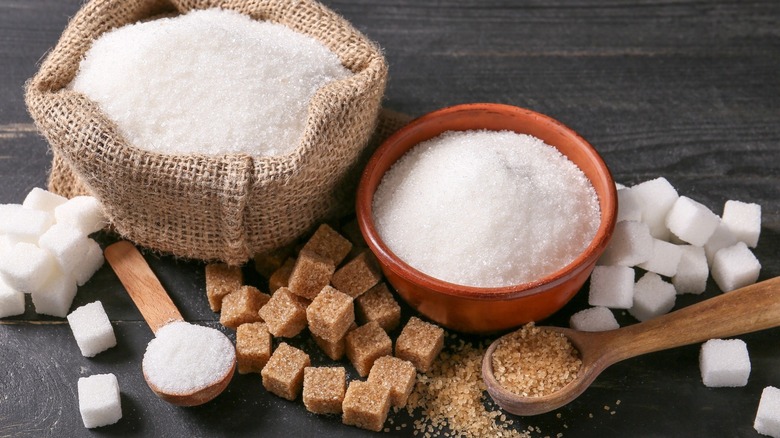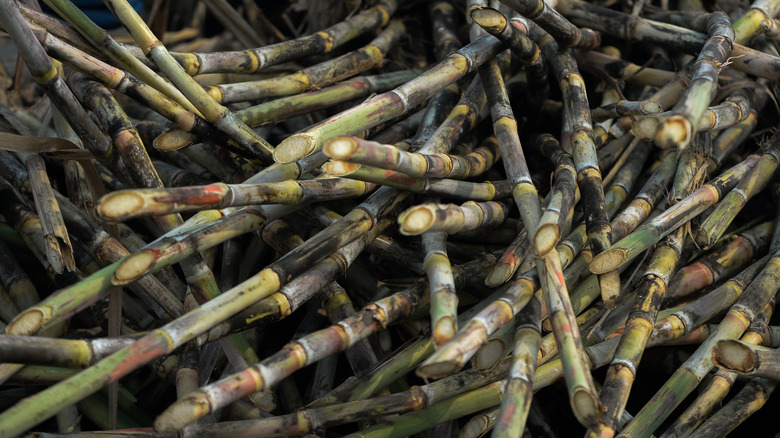Sugar Imports And Price Could Be Heavily Disrupted After Dominican Republic Ban
Just in time for holiday baking season, the price of sugar may be about to rise. While you may have plans to test out 28 recipes to make you the star of your holiday cookie swap, you may have to back burner a few of those sugar-filled recipes. With the brutal inflation we've faced in the past year, sugar prices have already taken a hit. A really big hit, as it happens, actually. According to the Consumer Price Index for October 2022, sugar prices are up 14% over what they were a year ago.
And that number may only continue to rise — but for different reasons. Fortunately, according to the New York Times, U.S. sugar prices are heavily regulated. Most of those regulations, including keeping the price above the international market price and offering preferential pricing to Dominican suppliers, buttress higher prices rather than keeping a roof on runaway pricing. But it does hopefully mean that there's a guiding hand there if things get out of control. And currently, a ban on certain sugar out of the Dominican Republic could impact imports and pricing.
What's happening and could things get out of hand?
There may be sugar shortages ahead following a human rights-based ban on a major Dominican Republic sugar supplier. Central Romano is now banned from importing into the U.S. due to claims of forced labor and abusive working and living conditions, among other human rights violations believed to be ongoing at the corporation (via New York Times). The producers previously farmed 59% of the sugar coming out of the country, according to the USDA. As the largest landowner and employer in the D.R., Central Romano imports upwards of 200 million pounds of sugar into the U.S. annually, much of it sold under the Domino brand name. According to Mother Jones, the company alone makes up 7% of U.S. raw sugar imports.
Apparently, Central Romano has been warned before about their human rights violations and been given time to clean up their act. The company claims it provides adequate housing, wages, and other provisions to its workers (via The Washington Post). However, a congressional delegation visited in 2022 and found, "...arduous working and living conditions ... [and] a culture of fear," Ways and Means Trade Subcommittee Chairman Earl Blumenauer and Congressman Dan Kildee said in a statement (via Ways and Means Committee). Most of the company's workers are Haitian migrants who live in company-provided housing neighborhoods called "bateyes." While Central Romano has made efforts to curb child labor, it's simply not enough, according to the committee.

